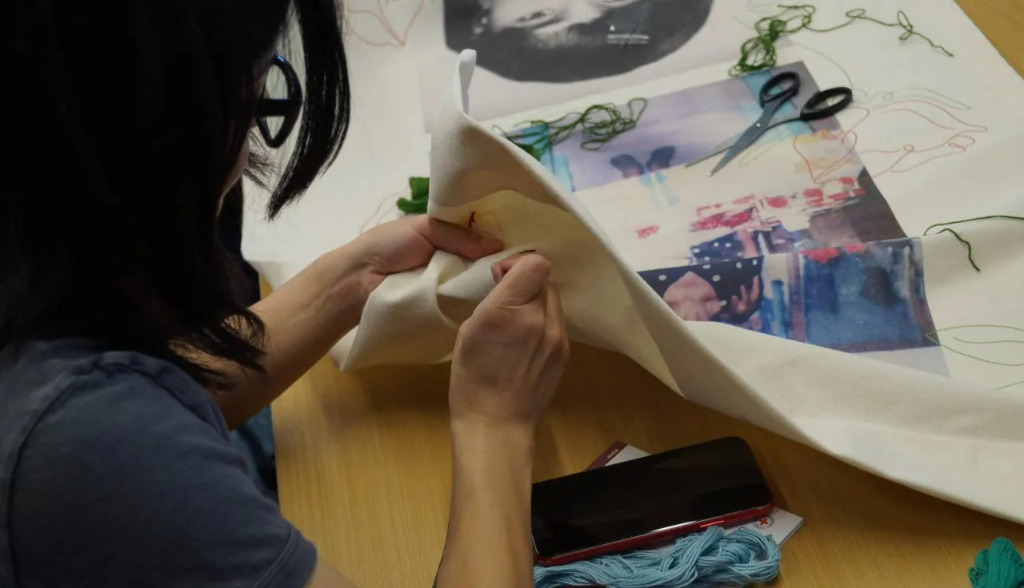Mexico City. Every person who dies without knowing the whereabouts of a missing relative “is an urgent call to redouble efforts to search for and locate” the victims and a reminder that the authorities “are responsible for this search that must not stop,” said the International Committee of the Red Cross (ICRC).
At the opening of the exhibition “Weaving Memory: The Legacy of Those Who Never Stopped Searching” at the Rafael Galván House of the UAM, Olivier Dubois, head of the ICRC regional delegation for Mexico and Central America, highlighted the “devastating impact” of the disappearance on a family.
Through this exhibition, which pays tribute to those who died with the pain of not finding their loved one, “we want to convey a key message: not to forget that behind every figure, behind every number, there is a family, there are stories of love, of struggle and of hope, and that everyone has the right to know and to find.”
The exhibition, which is based on portraits of deceased searchers and their missing loved ones printed on blankets and embroidered by their relatives, is also a reflection of resilience and reconstruction “in the midst of pain, it is an intimate space where we get closer to the lives of those who continue searching, where we understand that collective strength is essential in this fight,” said Dubois.
The head of the National Search Commission, Teresa Guadalupe Reyes Sahagún, participated in the ceremony. Relatives of missing persons asked her for understanding and for the importance of the participation of families in the search processes to be shared in the transition process between the government of President Andrés Manuel López Obrador and the one that will begin in October, Claudia Sheinbaum, virtual president-elect.
“Thousands of mothers, fathers, daughters and sons have gone out to look for (our relatives) and we believe that (because of) our experiences, along with the State’s obligation, it is important that they consider us,” said Lizeth Cardona, who is looking for her father Gersain, who disappeared in 2009 in Coahuila.
Reyes Sahagún said that the current government decided that the search would stop being an individual struggle “and become a task of the State, with all the difficulties that this entails because it requires the coordination of various institutions.”
He acknowledged that it is the relatives of missing persons who trigger the searches, but that “in many of them there are also public servants, not as many as we would like, not as organized as we would like, we lack a lot of effort and work; but they are also there and are also in the processes of locating and finding people.”
The exhibition will be open to the public from today until September 10.
#Weaving #memory #exhibition #pays #tribute #stopped #searching
– 2024-08-14 00:43:39


:quality(85)/cloudfront-us-east-1.images.arcpublishing.com/infobae/GY2GYK6JYRHEBA6GVCFCI3F6GM.jpg)